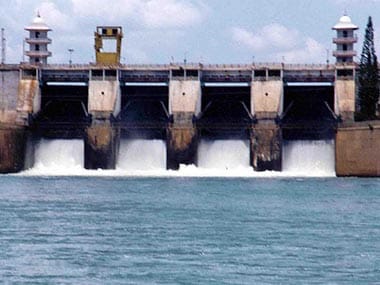Kashmiris have been conquered and reconquered by the invaders, who have murdered, oppressed and enslaved their ancestors and so ground the life and heart out of them that their better selves have been crushed."In ancient times, the grandeur of a king was measured by the extent of his conquest. The ancient kings of Kashmir too were anxious to extend their kingdom. Kashmir has produced many conquerors, whose exploits have covered many pages of history. Laltaditya, a king of Kashmir in the 8th century had political and military relations with the emperor of China. The Kashmir embassy arrived in the Chinese court in 713. Mehar Kula carried the Kashmiri arms to South India. He even invaded Ceylon. Viapida subdued all the states on the borders of Kashmir. He over ran the Panjab and reached as far as Allahabad.' Sultan Mahmud of Ghaznah led several attacks into India and he succeed in his raids. But he failed in Kashmir and his two attacks against Kashmir were refused by the Kashmiris. He attacked Kashmir in 1015, but failed. He led a second attack in 1021-22 but without success. The Kashmiris held back the invaders by their inherent bravery and excellent morale.
One of the most remarkable rulers of Kashmir was Sultan Shab-ud-Din, who conquered Sind, Kabul, Hindu Kush and Kangra. Jonaraja says that the Sultan did not count that day in his life when he did not receive the news of some great exploit of his troops. Winter or summer, night and day, hunger or thirst, nothing daunted him from continuing his successful march.
Sultan Zainabidin, the Badshah deputed his troops to regain Ladakh and Tibet, from the ruler of Khasgar. The Kashmiris fought bravely and defeated the Kashgarians. The Kashmiris brought Sind under the suzerainty of Badshah, when his nephew became its Nazim his kingdom extended from Sirhind to Peshawar.
During the middle of the sixteenth century, chaos prevailed in Kashmir and led to its conquest and enslavement by Mirza Haider Duglat in about 1540 A.D. He followed the policy of divide and rule. Internecine warfare and fights started between rival groups as well as among the Shias and the Sunnies. Such a chaos weakened the Kashmiris and as such, they had to remain slaves of the Mughals for more than 100 years. But they fought again to snatch away their independence. The Chaks tried to consolidate the Kashmir Kingdom, but failed. The process of disintegration had set in, due to struggle between various rival factions and sects. The net result was that Kashmir was split into various parts and every fandal lord carved out his own principality. Gazi Khan ascended the throne of Yashmir in 1554. He was a strong man and a great conqueror. He conquered Ladakh, Gilgit, Baltistan, Hazara and Kishtwar and brought other rebellious principalities under control. Each province was given to the Kashmiri Faujdar. He crushed the nobles with much severity for he could not tolerate disobedience and aimed at regaining the past glory of Kashmir.
One of the most remarkable rulers of Kashmir was Sultan Shab-ud-Din, who conquered Sind, Kabul, Hindu Kush and Kangra. Jonaraja says that the Sultan did not count that day in his life when he did not receive the news of some great exploit of his troops. Winter or summer, night and day, hunger or thirst, nothing daunted him from continuing his successful march.
Sultan Zainabidin, the Badshah deputed his troops to regain Ladakh and Tibet, from the ruler of Khasgar. The Kashmiris fought bravely and defeated the Kashgarians. The Kashmiris brought Sind under the suzerainty of Badshah, when his nephew became its Nazim his kingdom extended from Sirhind to Peshawar.
During the middle of the sixteenth century, chaos prevailed in Kashmir and led to its conquest and enslavement by Mirza Haider Duglat in about 1540 A.D. He followed the policy of divide and rule. Internecine warfare and fights started between rival groups as well as among the Shias and the Sunnies. Such a chaos weakened the Kashmiris and as such, they had to remain slaves of the Mughals for more than 100 years. But they fought again to snatch away their independence. The Chaks tried to consolidate the Kashmir Kingdom, but failed. The process of disintegration had set in, due to struggle between various rival factions and sects. The net result was that Kashmir was split into various parts and every fandal lord carved out his own principality. Gazi Khan ascended the throne of Yashmir in 1554. He was a strong man and a great conqueror. He conquered Ladakh, Gilgit, Baltistan, Hazara and Kishtwar and brought other rebellious principalities under control. Each province was given to the Kashmiri Faujdar. He crushed the nobles with much severity for he could not tolerate disobedience and aimed at regaining the past glory of Kashmir.





No comments:
Write comments